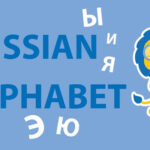Russian Jokes || Our Favourite Four (+ Top Tips On How To Deliver The Perfect Joke)
Learn How To Tell The Perfect Joke in Russian
Humour plays a significant role in Russian culture and is often used to communicate and socialise.

Russian jokes, or “анекдот” (anekdoty) have a long tradition dating back to the Soviet era and are a popular form of entertainment today.
These jokes often contain elements of satire and wit and can be used to poke fun at politicians, celebrities, and everyday life.
In addition to being a source of entertainment, jokes serve as a way for people to express their frustration and find common ground with others.
Humour is also used as a coping mechanism, allowing people to laugh at difficult situations and find positive ways to face challenges.
Humour is an integral part of Russian culture and helps to bring people together through shared experiences and laughter.
Today we are going to learn more about Russian jokes, how they are structured and we’ll even teach you your very first jokes in Russian!
Russian Jokes || The Typical Structure
Russian Jokes || The Types of Tone
Russian Jokes || The Subjects
Russian Jokes || Tips for Telling Jokes
Russian Jokes || Our Favourite Four
Russian Jokes || FAQs
The Structure Of Russian Jokes
Russian jokes often use wordplay and puns to create humorous effects.
This can include plays on words and phrases, such as using a word with multiple meanings or altering the spelling of a word to create a new meaning.
Russian idioms and proverbs are also commonly used in jokes, as they add cultural flavour and can be humorous due to their often absurd or metaphorical nature.
Cultural references are also common in Russian jokes, as they rely on the audience’s knowledge of Russian history, literature, and societal norms.
For example, a joke might reference a famous Russian writer or a well-known historical event.
These jokes can be especially entertaining for Russians, as they allow people to laugh at and bond over shared cultural experiences.
Russian jokes often involve wordplay, idioms, proverbs, and cultural references to create a humorous and entertaining effect.
BONUS || Why not push your Russian level forward and start studying Russian with Flexi Classes.
The Tone Of Russian Jokes
The tone of Russian jokes can vary widely, but some common elements include the use of irony, sarcasm, dark humor, and absurdism.
The Use Of Irony And Sarcasm
Irony is often used in Russian jokes as a way to mock or satirize a person, situation, or event.
This can involve saying the opposite of what is meant or using words in a way that is opposite to their usual meaning.
Sarcasm is also commonly used in Russian jokes, with speakers often using a sarcastic tone or making comments that are meant to be taken in a humorous, rather than literal, way.
The Use Of Dark Humour
Dark humour (or black comedy), which is humour that is based on unpleasant or taboo subjects, is also a common feature of Russian jokes.
This type of humour can make light of difficult or painful situations and serve as a coping mechanism for people dealing with difficult circumstances.
The Use Of Absurdism
Absurdism, which is the idea that life is fundamentally irrational and meaningless, is also a common element of Russian jokes.
These jokes often involve situations or events so absurd or unlikely that they are humorous.
The tone of Russian jokes can range from light and playful to dark and satirical, with various humorous techniques used to create a range of comedic effects.

Numbers in Russian | How to Count from 1-100 (And Beyond)
One of the first things you will need to learn in any language is the numbers. Today we focus on how to say Russian numbers. Quiz and Flashcards included.
The Subjects Of Russian Jokes
Russian jokes often touch on various subjects, including political and social commentary, personal relationships and everyday life, and historical events and figures.
Political and social commentary is a common theme in Russian jokes, with jokes often used to express frustration or criticism of the government or societal norms.
These jokes can be used to poke fun at politicians, bureaucrats, and other public figures and provide a way for people to vent their grievances humorously.
Personal relationships and everyday life are also common subjects of Russian jokes.
These jokes can be about romantic relationships, family dynamics, work, and other aspects of everyday life.
They can be used to highlight the absurdities and challenges of modern life and provide a way for people to bond over shared experiences.
Historical events and figures are also a popular subject of Russian jokes.
These jokes can involve references to famous Russian writers, politicians, and other historical figures, as well as events such as the Soviet era or World War II.
They can be used to provide a historical perspective on current events or poke fun at past events and figures humorously.

Tips for Telling Jokes in Russian
Telling jokes in Russian can be a fun way to practice the language and connect with native speakers.
Here are some tips for pronunciation, grammar, and building rapport when telling jokes in Russian:
Pay Attention To Pronunciation
Russian has a different alphabet and sound system to English, so it’s important to pay attention to how words are pronounced.
Make sure to stress syllables correctly and pay attention to consonants’ hard and soft sounds.


Use Proper Grammar
Russian has a complex grammatical system, so it’s important to use proper verb conjugations and noun declensions when telling jokes.
Make sure to consider gender, case, and number when forming phrases and sentences.
Just ask a native if you are unsure!
Avoid Common Mistakes…
… but don’t be afraid to make them at the same time!
Some common mistakes that English speakers make when telling jokes in Russian include:
- Using the wrong case or number
- Incorrect verb conjugations
- Incorrect prepositions.
To avoid these mistakes, practicing the language and familiarizing yourself with common grammatical structures is helpful.
With that being said though, don’t let this put you off. Making mistakes is the way we learn.
We make a mistake, we laugh about it and because of this, we certainly won’t make it again!
Think before you speak, but don’t get to hell bent on being word perfect! You got this!
Build Rapport And Timing
Telling jokes is a great way to build rapport with native speakers and create a sense of connection.
Pay attention to the tone and pace of the joke and try to match the delivery of the joke to the audience.
Timing is also important, as the punchline should be delivered at the right moment for maximum comedic effect.
Examples Of Russian Jokes And Their Translations
Let’s take a look at some Russian jokes from some of the categories mentioned above.
Political and Social Commentary
Суд оправдал водителя, который ехал с закрытыми глазами, чтобы не видеть Новокузнецк.
Sud opravdal voditelya, kotoryj ehal s zakrytymi glazami, chtoby ne videt Novokuzneck.
TRANSLATION || The court acquitted the driver, who was driving with his eyes closed, so he didn’t need to see Novokuznetsk.
This Russian joke is a great way to take the mickey out of any city that you think deserves some stick.
In this example, poor Novokuznetsk tales the brunt from us. If a city has really gone downhill, or you have a lower opinion of it, replace the city name above and you’re good to go!
Sarcasm
Я говорил своим детям не играть в русскую рулетку, но, как обычно: в одно ухо влетело, из другого вылетело.
Ya govoril svoim detyam ne igrat v russkuyu ruletku, no, kak obychno: v odno uho vletelo, iz drugogo vyletelo.
In Russian, if someone has a tendency to forget quickly, you might say something “flew in one ear and flew out the other”.
It’s an idiom for those who have difficulty retaining information.
In English the equivalent would be “in one ear and out the other”. We use it in Russian as a joke for an airhead!
Feminism
Русскими должна управлять женщина!
Опять женщина чего-то должна…
Russkimi dolzhna upravlyat zhenshina!
Opyat zhenshina chego-to dolzhna…
TRANSLATION | Russians should be ruled by a woman! Again, a woman owes something…
Слово “должен” в русском языке может иметь разные оттенки значения
When a person drops the word “должен” (dolzhen) you never know what they’re implying — it could be an opportunity, or it might mean something must get done!
This elusiveness is part of why jokes using this phrase always have that special touch to them.

The Russian Alphabet | A Complete Guide (with Quiz & FREE Flashcards)
Ready to start your Russian adventure? It’s time to learn the Russian Alphabet. Our guide comes complete with tips, tricks, flashards and even a quiz.
Pets
Джек каждый день садится на крыльцо и начинает выть, пока не уделю ему внимания. А еще, Джек — не моя собака.
Dzhek kazhdyj den saditsya na krylco i nachinaet vyt, poka ne udelyu emu vnimaniya. A eshe, Dzhek – ne moya sobaka.
TRANSLATION | Jack sits in the porch every day and starts howling until I pay attention to him. Also, Jack is not my dog.
This joke works like a charm!
It starts with us getting to know the pet of its author – Jack.
But then in one swift move, we’re taken by surprise when it turns out that he’s an unfamiliar pup after all!
We hope you enjoyed our guide to Russian jokes and humour.
Why not tell us some of your favourite Russian jokes in the comments and if you want to learn more about how humour differs around the world, why not check out these posts:
- Our favourite Chinese jokes
- The best jokes in Japanese
- Korean jokes that’ll have you howling
Russian Jokes || FAQs
How do you say joke in Russian?
Jokes in Russian are known as “anecdotes” which conveniently translates to “анекдот” (anekdoty).
What are some typical subjects for Russian jokes?
Political and social commentary is a common theme in Russian jokes, with jokes often used to express frustration or criticism of the government or societal norms.
These jokes can be used to poke fun at politicians, bureaucrats, and other public figures and provide a way for people to vent their grievances humorously.
Historical events and figures are also a popular subject of Russian jokes.
These jokes can involve references to famous Russian writers, politicians, and other historical figures, as well as events such as the Soviet era or World War II.
Is irony a common theme in Russian humour?
Irony is often used in Russian jokes as a way to mock or satirize a person, situation, or event.
This can involve saying the opposite of what is meant or using words in a way that is opposite to their usual meaning.
Sarcasm is also commonly used in Russian jokes, with speakers often using a sarcastic tone or making comments that are meant to be taken in a humorous, rather than literal, way.
Want More From LTL?
FANCY LEARNING RUSSIAN? Check out our online Russian courses here.
We offer a 7-day free trial to all online students where you can study Russian 24/7.
Come and be a part of our amazing community.










